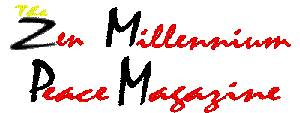

What's Right and Want's Wrong
A Quaker Statement on the Arms Trade (1993)
Since 1945, there have been over 150 wars, resulting in millions of deaths, and many more injured or homeless. Each has taken its toll, too, in physical destruction, in environmental damage, and in the psychological and spiritual wounds inflicted when human beings seek the means to kill one another. Almost all of these wars have been fought in countries of the South, and almost all have involved the use of arms transferred or traded by countries of the North, with the active encouragement of their governments. British companies are among the major arms suppliers worldwide, and we cannot escape our own responsibility.
As members of London Yearly Meeting of the Religious Society of Friends (Quakers), we are led by our peace testimony to speak out clearly against this buying and selling of lethal technology. For over 300 years, guided by our experience of God's spirit working in this world, we have turned away from weapons which kill or maim and have struggled instead to remove the causes of war, to relieve suffering and to build the foundations of peace and justice. To reject the trade in arms , and to commit ourselves actively to the creation of a world where such a trade is no longer deemed necessary or expedient, must form part of our ongoing witness.
We believe the arms trade to be morally wrong. It encourages governments to seek military solutions to political problems and adds to the suffering in any resulting conflict. Even if the weapons traded are never used, the resources spent to manufacture and buy them are diverted forever from essential human needs such as food and health care. The global trade in arms makes the world less, not more, secure.
The evil of the arms trade is so deeply embedded in our industrial and political thinking that to eliminate it will require strenuous effort over many years. In the UK alone, defence related industries provide work for about one million people. Do we have to set their livelihoods against the very lives of people in importing countries? Or can we put enough energy into the transfer of resources from arms manufacture to socially useful purposes to render this equation redundant? And what of those who believe that buying armaments makes them more secure? Curtailing the arms trade is not enough. Solutions must be found to be causes of conflict and to the injustices which foster wars and the stockpiling of weapons.
Further information from:Campaign Against Arms Trade, 11 Goodwin St, London N4 3HQ | Tel: +44-(0)20 7281 0297 | Fax: +44-(0)20 7281 4369
Website: Campaign Against Arms Trade
Peace Education, Friends House, 173-177 Euston Road, London, NW1 2BJ | Tel: +44-(0)20 7663 1000 | Fax: +44-(0)20 7663 1001
UK Website: The Religious Society of Friends (or Quakers) in Britain

